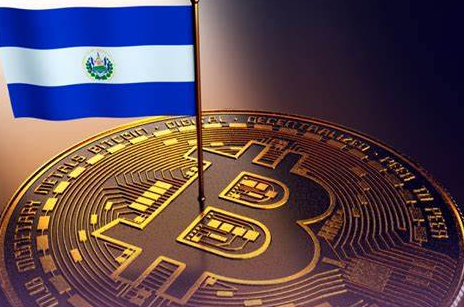Celebrating One Year of Bitcoin As Legal Tender in El Salvador. Celebrating One Year of Bitcoin as Legal Tender in El Salvador has been a mixed bag. Some believe the real payoff is yet to come. However, other observers are skeptical. Insiders suggest that the real payoff could be far down the road. This article explores the issues surrounding El Salvador’s decision to recognize Bitcoin as Legal Tender.
El Salvador’s adoption of bitcoin as legal tender
El Salvador’s President Nayib Bukele is praising Bitcoin as a way to cut down on fees for sending remittances, which account for 22% of the country’s GDP. Over 70 percent of Salvadorans do not have a bank account, so embracing bitcoin would improve the speed and cost of remittances. It would also help free the nation from its financial and currency dependency on the global financial system. In fact, Bitcoin’s adoption is part of President Bukele’s charm offensive with the crypto community.
However, the rollout process has been far from smooth. Bitcoin values fell by more than 10% on the day of the launch, and the country’s central bank has yet to announce a final decision on whether to make it legal tender. Despite this, El Salvador’s government has purchased 150 more bitcoins since Sept. 20, bringing its total holdings to around $22 million. Nonetheless, some in the Bitcoin community have concerns about the government’s handling of the experiment.
In addition, the country’s board of directors has urged authorities to remove Bitcoin from legal tender status, pointing out the risks associated with the virtual currency and Bitcoin-backed bonds. But the government pushed forward with its plans anyway, releasing a digital wallet app, and installing 200 new cash machines. The move was presented as a way to stimulate economic development, but the debate over it has left some people worried.
The adoption of Bitcoin as legal tender in El Salvador is likely to create a ripple effect in the economy. In the short-term, if the new law passes, it could make the country the first country to accept it as a form of legal tender. The adoption of bitcoin will allow businesses to accept the digital currency.
However, there are also concerns about security in the country. According to a study conducted by Central American University, only 10% of Salvadorans surveyed knew how to use bitcoin. Furthermore, only a few businesses accept bitcoin payments, and the government’s cryptocurrency app has technical problems. Some Salvadorans complained of identity fraud, lost transactions, and error codes when using the Chivo app.
Issues with recognizing bitcoin as legal tender
Until recently, cryptocurrencies did not enjoy legal tender status in any country. While most nations treat them as property, a recent case in El Salvador has changed that, recognizing Bitcoin as legal tender on September 7, 2021. The reclassification of virtual currencies as foreign currency is likely to have domino effects, as it clarifies FinCEN reporting requirements.
The adoption of bitcoin was met with teething problems in El Salvador, where it was clouded by mistrustful citizens and technical glitches. Despite a government app that was released by Huawei, the country had trouble processing the growing number of registrations. The government’s app was overloaded and eventually unplugged from the internet in order to connect to more servers.
Impact of adoption on El Salvador’s economy
The adoption of Bitcoin in El Salvador has been a controversial topic in the past, and many critics have used the numbers to knock down the technology. However, these numbers don’t tell the whole story. In fact, the adoption of Bitcoin has helped El Salvador’s economy in a number of ways. The use of bitcoin has helped to facilitate investments, promote tourism, and improve the security and infrastructure of the country. In addition, the adoption of bitcoin is helping to attract the diaspora back to El Salvador.
Remittances to El Salvador are an important source of income. However, they are often expensive, and sending them through Bitcoin is risky. Remittances will account for nearly one-quarter of El Salvador’s GDP by 2020. However, while many people outside of El Salvador have expressed excitement over Bitcoin adoption, some people inside the country still do not fully understand how Bitcoin works.
The president of El Salvador, Elberto Bukele, is forty-years-old, has an unorthodox style of communication, and wants to “rebrand” the country as a modern innovation hub. In addition to focusing on the digital economy, he wants to create a “San Salvador dream” for the country’s people. However, the president is also battling the U.S., and has become increasingly vocal in his criticism of the U.S., and has even kicked a few journalists out of the country.
El Salvador has struggled with its economy for years. It is in need of international investors to keep its finances afloat. Its national debt currently stands at 84% of its GDP, a dangerous level for a small economy. As a result, the international financial community has expressed concern over El Salvador’s plans to adopt Bitcoin.
Last June, El Salvador’s government passed legislation making bitcoin legal tender. As a result, bitcoin can now be held in the country’s banks. It is also allowed to be traded on the local market without paying capital gains tax. The legislation also aims to encourage financial inclusion in the country, where 70% of the population does not have access to traditional financial services.
As of August 2018, El Salvador has received $6 billion in remittances from U.S. citizens, most of which comes through money transfers. However, the volatility of bitcoin has worried many Salvadorans. This uncertainty has caused prices to drop dramatically. It has also halted negotiations with the IMF, which would plug a $1 billion hole in El Salvador’s public finances.
Future of cryptocurrency in El Salvador
Bitcoin and cryptocurrency have been a hot topic in El Salvador, where the government is considering adopting them as official currencies. However, critics have expressed concerns about using national funds to invest in cryptocurrency, which is prone to volatility. In addition, El Salvador is still recovering from a civil war, and its authoritarian government has been cracking down on citizens who criticize it. Many Salvadorans say that the government’s interest in courting wealthy crypto investors threatens their economic future.
The Bitcoin Law in El Salvador is set to take effect in September 2021. This law will make bitcoins legal tender and enable people to pay their taxes with them. It will also make it possible for citizens to buy and sell bitcoins without paying capital gains tax. The new legislation is being implemented in order to promote financial inclusion in El Salvador, where roughly 70 percent of the population lacks access to traditional financial services.
In November, Bukele announced plans for Bitcoin City, which will be based at the Conchagua Volcano in La Union. The Volcano is an important symbol for Salvadorans, and is an obvious target for crypto-gentrification plans. Recently, the government released new 3D renders of the project, and they hope to attract investors to help fund its construction.
In addition to the cryptocurrency sector, the government has supported dollarization in El Salvador. Until 2001, the colon was pegged to the US dollar. This helped control inflation. However, the government replaced the colon with the dollar in 2001, making the country’s economy more stable and reducing the cost of borrowing. As a result, the country’s debts were reduced, and government spending was restricted. Some analysts speculate that the move to accept Bitcoin is a precursor to scrapping the dollarization system.
The El Salvador government has also taken a big step in promoting bitcoin, announcing plans to develop a digital wallet called Chivo, which means “goat” in Spanish. The Chivo Wallet is designed to help users easily transfer cryptocurrency funds, similar to Venmo and Paypal. The government did not reveal the name of the corporation behind the project, but a U.S.-based company is the largest player behind the rollout.



